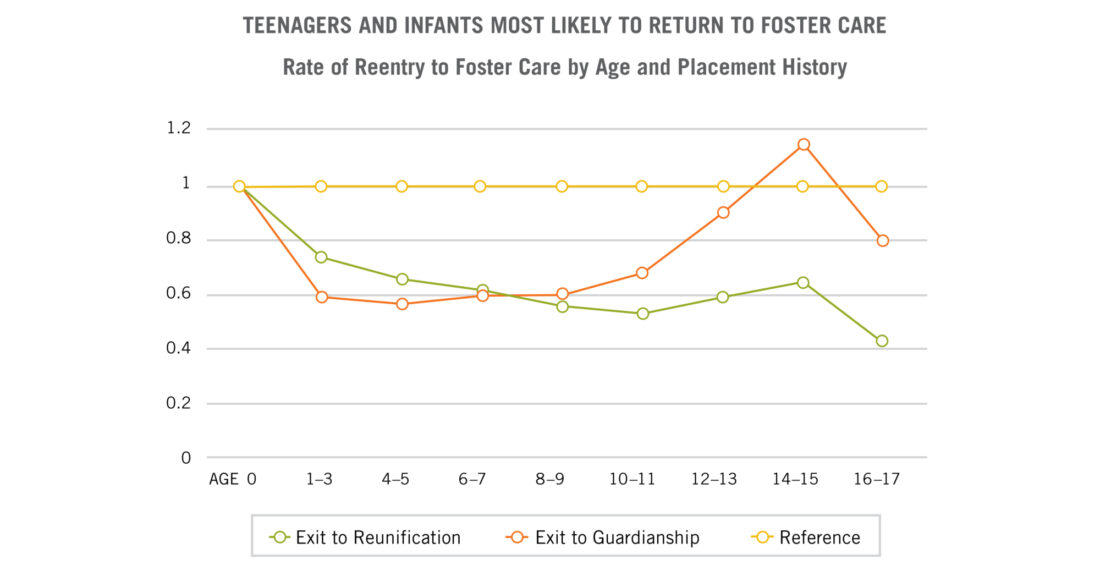Infants and Teens More Likely to Experience Foster Care Reentry

Children who have exited foster care are more likely to return to care if they are infants, in their early teen years or have experienced a group placement before reuniting with their families, according to a new study conducted by the Center for State Child Welfare Data and funded by the Annie E. Casey Foundation.
Download Reentry to Foster Care
In addition to assessing a child’s risk of returning to foster care after discharge, the study — Reentry to Foster Care — explores how child welfare agencies can identify kids who might benefit from evidence-based interventions available through the Family First Prevention Services Act.
Based on a sample of more than 600,000 children in 20 states, the research covers a seven-year window from 2003 and 2010. It examines the trajectories of children who exited their first stay in care before age 18 to be reunited with their families or placed with guardians. Follow-up analysis continued through Dec. 31, 2017.
To assess the risk of reentering foster care after reunification or placement with a guardian, researchers looked at three clusters of variables: 1) child characteristics, including race and ethnicity, gender and age; 2) placement history, such as the type of placement and length of stay; and 3) social context — the extent of socioeconomic disadvantage, for example.
“When a child has left foster care to live with family, the last thing we want is for them to need to return,” says Rodney Brittingham, associate director of the Casey Foundation’s Child Welfare Strategy Group. “As states develop their plans for taking advantage of Family First, this research can help child welfare agencies focus on families and young people who can benefit the most from services that help them stay together.”
Among the study’s findings:
- Of the nearly 460,000 kids who left their first stay in foster care to reunite with families, 27% returned to care
- Of the more than 147,000 kids who left their first stay in foster care for guardianship, 17% returned to care.
- In both reunification and guardianship scenarios, a child’s risk of reentering foster care is greatest soon after their discharge from care.
- The risk of reentry increases when children become teenagers, with rates peaking at 14 and 15 years old.
- Among kids of all ages: Infants run the greatest risk of reentering care, regardless of how they exited the system.
- Children who experience a group placement right before reunification are about 20% more likely to reenter the system versus kids who exit via a traditional foster home.
- For kids ages 11 and younger, white children are more likely to return to care than African-American or Latino children.
- Among older children (ages 12 and up) reentry rates are highest among African-American youth.
The study’s authors, Fred Wulczyn, Florie Schmits and Scott Huhr, recommend that state and local child welfare agencies pay close attention to two groups that might benefit substantially from the preventive services funded by the Family First Act: 1) very young children — especially infants who enter, leave and return to care before their first birthday; and 2) older youth, including those who may have been discharged from care many years earlier.
Learn about three key fiscal considerations for implementing the Family First Act






